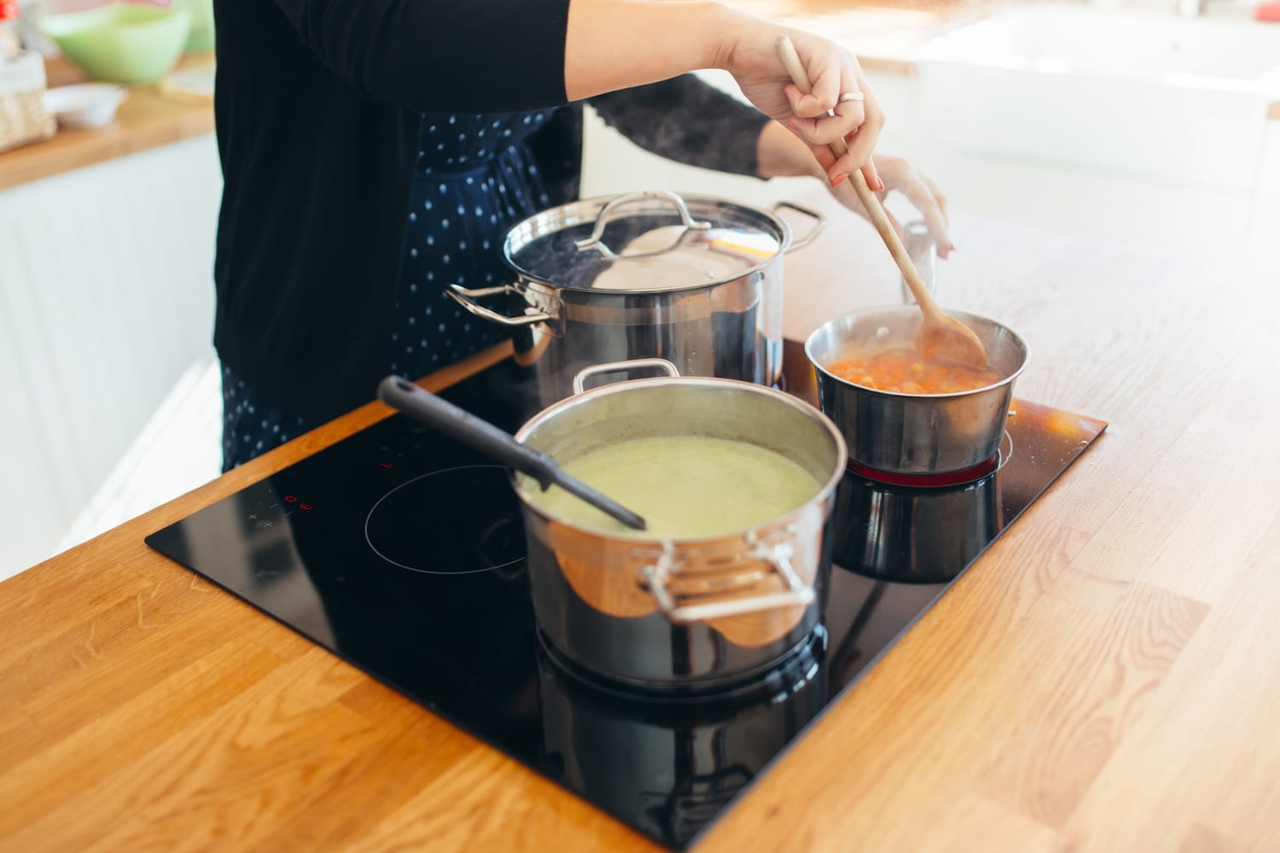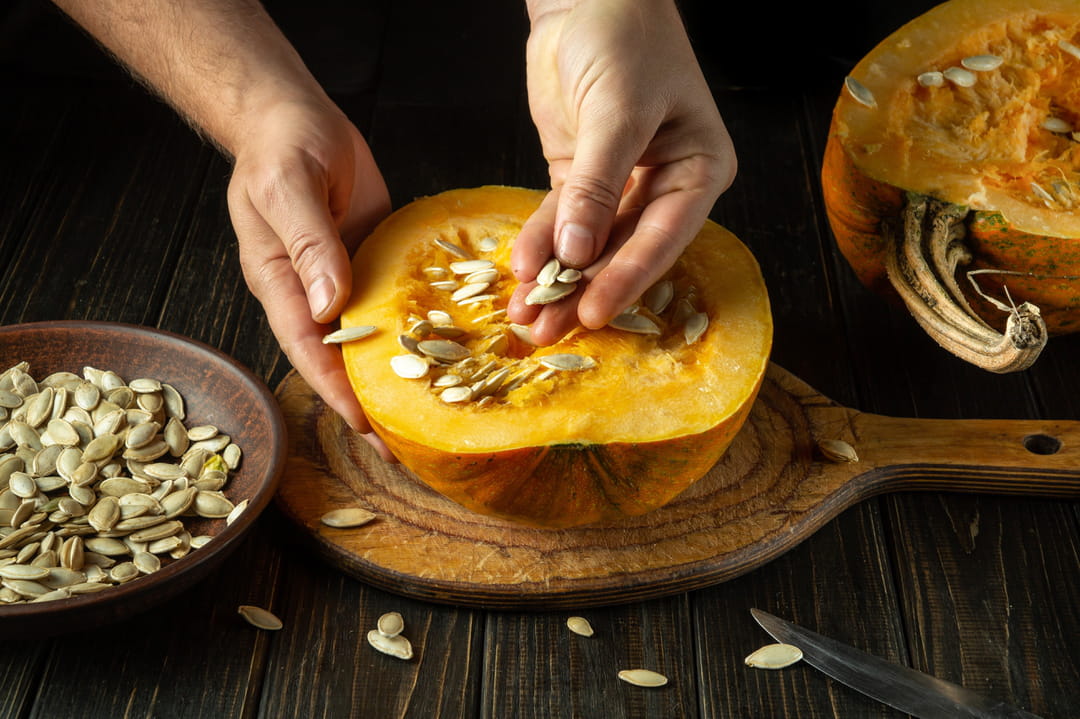Rich in protein, good for skin and hair... and yet everyone throws them in the bin every autumn

In the fall, we enjoy squash soups, especially pumpkin soup, the star ingredient of Halloween. And when it comes time to cut them up, we often have the same reflex: the seeds end up in the bin. What a mistake! These little seeds are full of benefits in their various forms.
You're probably already familiar with pumpkin seeds? Pumpkin seeds belong to the same family. They simply come exclusively from the Cucurbita pepo species. Whether it's squash or pumpkin, remember that in both cases, they are a veritable treasure trove of nutrients.
Don't know how to cook them? Here's a simple recipe borrowed from our Canadian friends who know a thing or two about pumpkins. After cutting your pumpkin, rinse the seeds. Roast them for 15-20 minutes at 175°C (350°F) with a little oil and salt, or add your favorite spices: smoked paprika, cumin, chili powder, Cajun seasoning... The extra touch? Let them dry for 24 hours at room temperature before cooking. Alternatively, caramelize them with butter and maple syrup or brown sugar, and don't forget a touch of cinnamon for a toasted flavor.
They will be a delight at breakfast in your granola! You can also enjoy them raw as a "healthy" snack, add them to salads, yogurts, smoothies, or even as a crunchy and roasted topping for a butternut squash and pumpkin soup.

In addition to being delicious, they'll also do you good. Pumpkin seeds are a true beauty ally thanks to their richness in zinc and antioxidants like vitamin E. They help fight skin aging, promote healing, and strengthen the skin's protective barrier. Their nutrients also contribute to hair growth and strength, preventing hair loss and boosting shine. Pumpkin seed oil is known for this and can be added to a salad.
Pumpkin seeds are also, and above all, an excellent source of plant-based protein, with nearly 20g per 100g, almost as much as almonds. This protein is essential for our muscles, bones, hair, and nails. Therefore, they are a valuable addition for vegetarians and anyone looking to reduce their consumption of animal protein.
Another treasure of these seeds is their high fiber content. With over 18g per 100g, they cover a very large portion of the recommended daily intake! This fiber helps combat constipation and nourishes our gut microbiota. Finally, fiber lowers bad cholesterol in the blood, promoting better heart health.
Moreover, pumpkin seeds are excellent for cardiovascular health thanks to their unsaturated fatty acids (omega-3, omega-6), magnesium, potassium, and fiber. They help regulate blood pressure and heart function , according to the American website Healthline .
However, consume them in moderation. They are quite high in calories (133 kcal per 30 g) and very rich in fiber, which can upset sensitive stomachs. Finally, be careful because even though all squashes have edible seeds, you should avoid the seeds of ornamental gourds. They contain a toxin that can cause poisoning, even in small doses.
L'Internaute





